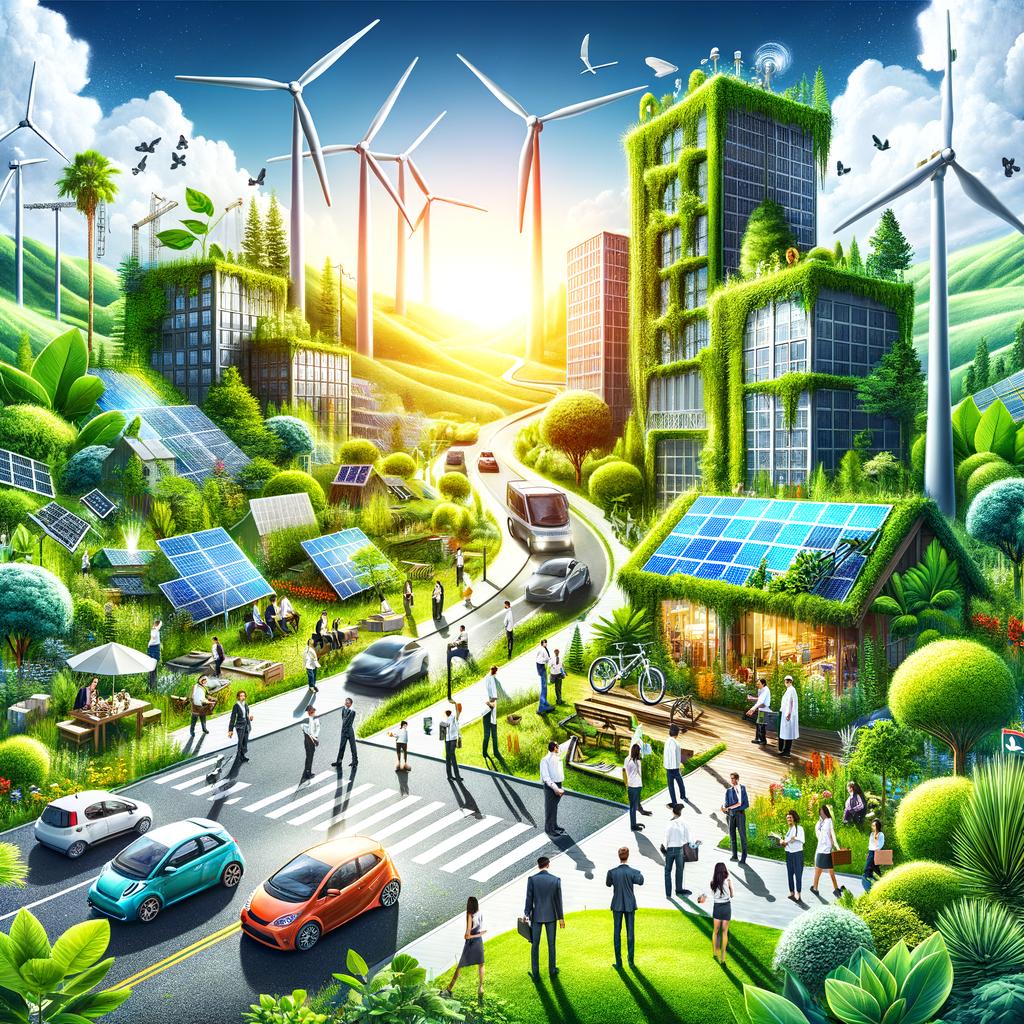Subscripe to be the first to know about our updates!

Asia-Pacific: How the region is prioritizing a green economy
Kanni Wignaraja, Debora Comini
In the vast expanse of the Asia-Pacific (APAC) region, the pressing need to tackle the dual challenges of environmental sustainability and economic growth has reached a critical juncture. The headwinds of climate change, coupled with unequal technological advancements, are intensifying the challenges to the region’s sustainable growth. Estimates suggest that as much as 63% ($19 trillion) of the region’s GDP is at risk due to nature loss caused by human activity and climate change.
Amid these challenges, Asia and the Pacific remains the fastest growing region in the world. Sustaining this trajectory depends on investments by governments and businesses, on the digital economy and policies enabling innovations and enterprise growth, but more importantly, on expanding and future-proofing the labour force and building resilience towards a net-zero future and greener economies.
Huge potential for green jobs and investments
Our region holds the potential to generate over 14.2 million (net) green jobs by 2030, creating opportunities for over 2 billion youth. Already, the region has seen a 30% growth in hiring for green jobs between 2016 and 2021.
The market for green businesses in Asia is expected to grow to between $4-5 trillion by 2030, and nature-positive business opportunities in the region could generate about 232 million jobs per year by 2030.
Despite this enormous potential, two concerns or uncomfortable facts stand out: first, much of the financing that is labelled as green comes in the form of loans to developing countries, and is provided at market rates. This makes it an unaffordable proposition and with more monies flowing back to the creditors. Second, green careers remain an underexplored and challenging avenue for young people.
For example, young social entrepreneurs in Viet Nam and Lao PDR have expressed concerns about the lack of inclusive education systems for equipping youth with green, digital, and 21st century skills. Alarmingly in ASEAN, only three out of the 10 countries have significant policies on skills development for green jobs.
To address these challenges, it is imperative for the region to prioritize investments that truly bring in a discounted green premium and zoom in on green skills targeted to its youth population. At the same time, fostering collaboration between public and private sector to ensure sustainable investments in the green sector is crucial to ensure the region’s growth trajectory and sustainability. Robust partnerships can drive impactful skills-development initiatives, facilitate inclusive youth employment opportunities, and catalyze the emergence of youth-led enterprises.
Asia-Pacific initiatives are beacons of progress
In Hong Kong SAR, the Network of Environmental Student Societies (NESS) – a youth-led organization – is leveraging intergenerational collaborations and partnerships between stakeholders and youth. Supported by initiatives like YECAP – a joint initiative by UNDP, UNICEF, and other partners – NESS is enhancing youth awareness and capacity in climate change and sustainability through their Green Jobs Fair, reaching over 150 youth each year.
Similarly, the Youth Environment Living Labs (YELL) initiative, a collaboration between UNDP, UNICEF and Amanah Lestari Alam, is making significant strides, to date supporting 15 youth-led projects throughout Malaysia. By engaging over 1,000 young people and local community members in green projects and skill-building, YELL is nurturing a new cohort of environmentally conscious leaders. Notably, its pilot work placement programme, Conservocation, is not only fostering green careers but also reconnecting youth with local, Indigenous, and traditional knowledge systems.
By reimagining youth participation in climate and environmental action, we can dismantle the barriers that deter young people from spearheading environmental action and accessing decent job opportunities.
Prioritizing the empowerment of marginalized youth, including girls and young women, Indigenous peoples, and persons with disabilities, is imperative. This makes the “green” more just, inclusive and future ready as it should be.
Source: World Economic Forum